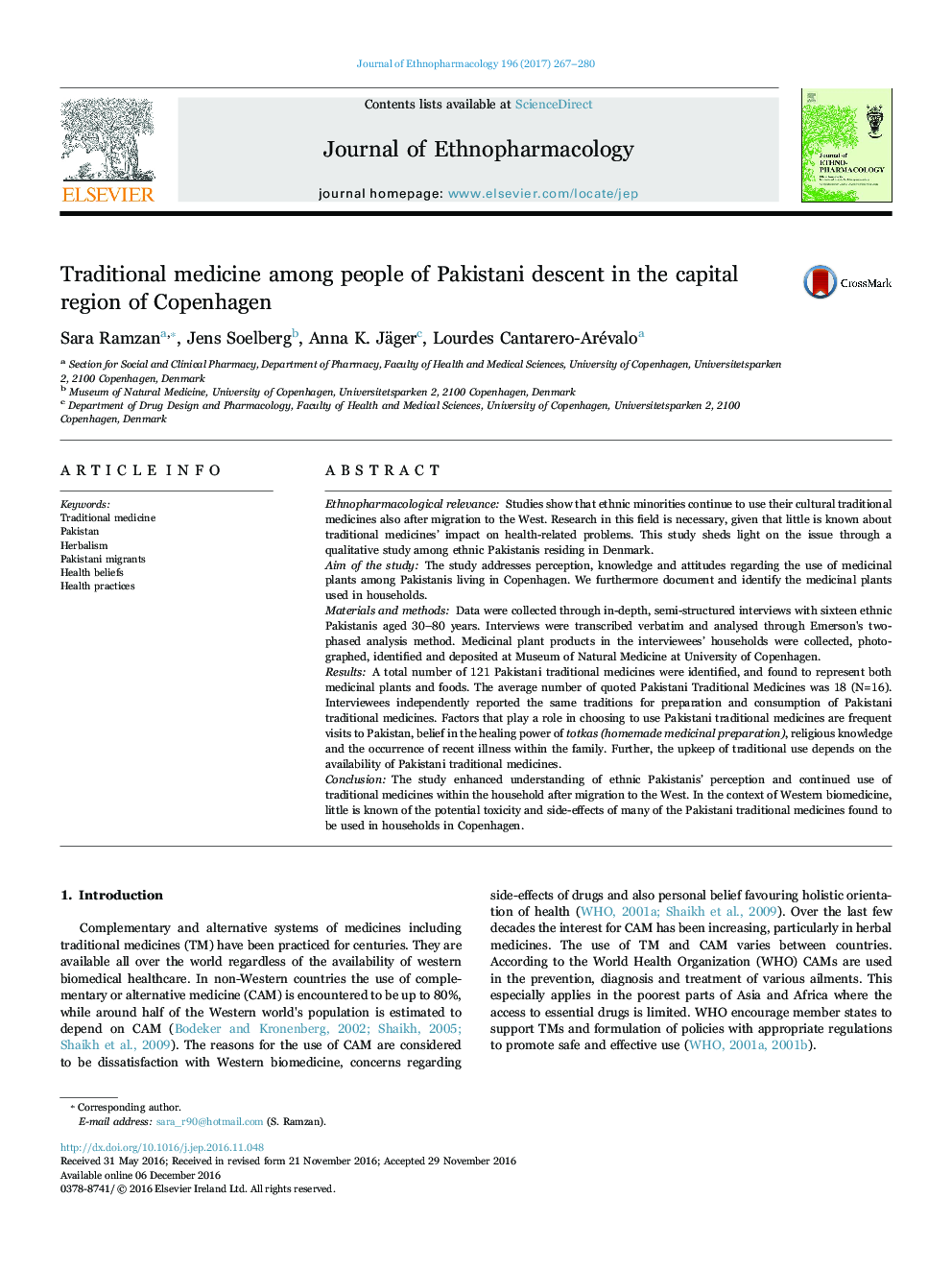| کد مقاله | کد نشریه | سال انتشار | مقاله انگلیسی | نسخه تمام متن |
|---|---|---|---|---|
| 5556469 | 1560366 | 2017 | 14 صفحه PDF | دانلود رایگان |
Ethnopharmacological relevanceStudies show that ethnic minorities continue to use their cultural traditional medicines also after migration to the West. Research in this field is necessary, given that little is known about traditional medicines' impact on health-related problems. This study sheds light on the issue through a qualitative study among ethnic Pakistanis residing in Denmark.Aim of the studyThe study addresses perception, knowledge and attitudes regarding the use of medicinal plants among Pakistanis living in Copenhagen. We furthermore document and identify the medicinal plants used in households.Materials and methodsData were collected through in-depth, semi-structured interviews with sixteen ethnic Pakistanis aged 30-80 years. Interviews were transcribed verbatim and analysed through Emerson's two-phased analysis method. Medicinal plant products in the interviewees' households were collected, photographed, identified and deposited at Museum of Natural Medicine at University of Copenhagen.ResultsA total number of 121 Pakistani traditional medicines were identified, and found to represent both medicinal plants and foods. The average number of quoted Pakistani Traditional Medicines was 18 (N=16). Interviewees independently reported the same traditions for preparation and consumption of Pakistani traditional medicines. Factors that play a role in choosing to use Pakistani traditional medicines are frequent visits to Pakistan, belief in the healing power of totkas (homemade medicinal preparation), religious knowledge and the occurrence of recent illness within the family. Further, the upkeep of traditional use depends on the availability of Pakistani traditional medicines.ConclusionThe study enhanced understanding of ethnic Pakistanis' perception and continued use of traditional medicines within the household after migration to the West. In the context of Western biomedicine, little is known of the potential toxicity and side-effects of many of the Pakistani traditional medicines found to be used in households in Copenhagen.
118
Journal: Journal of Ethnopharmacology - Volume 196, 20 January 2017, Pages 267-280
